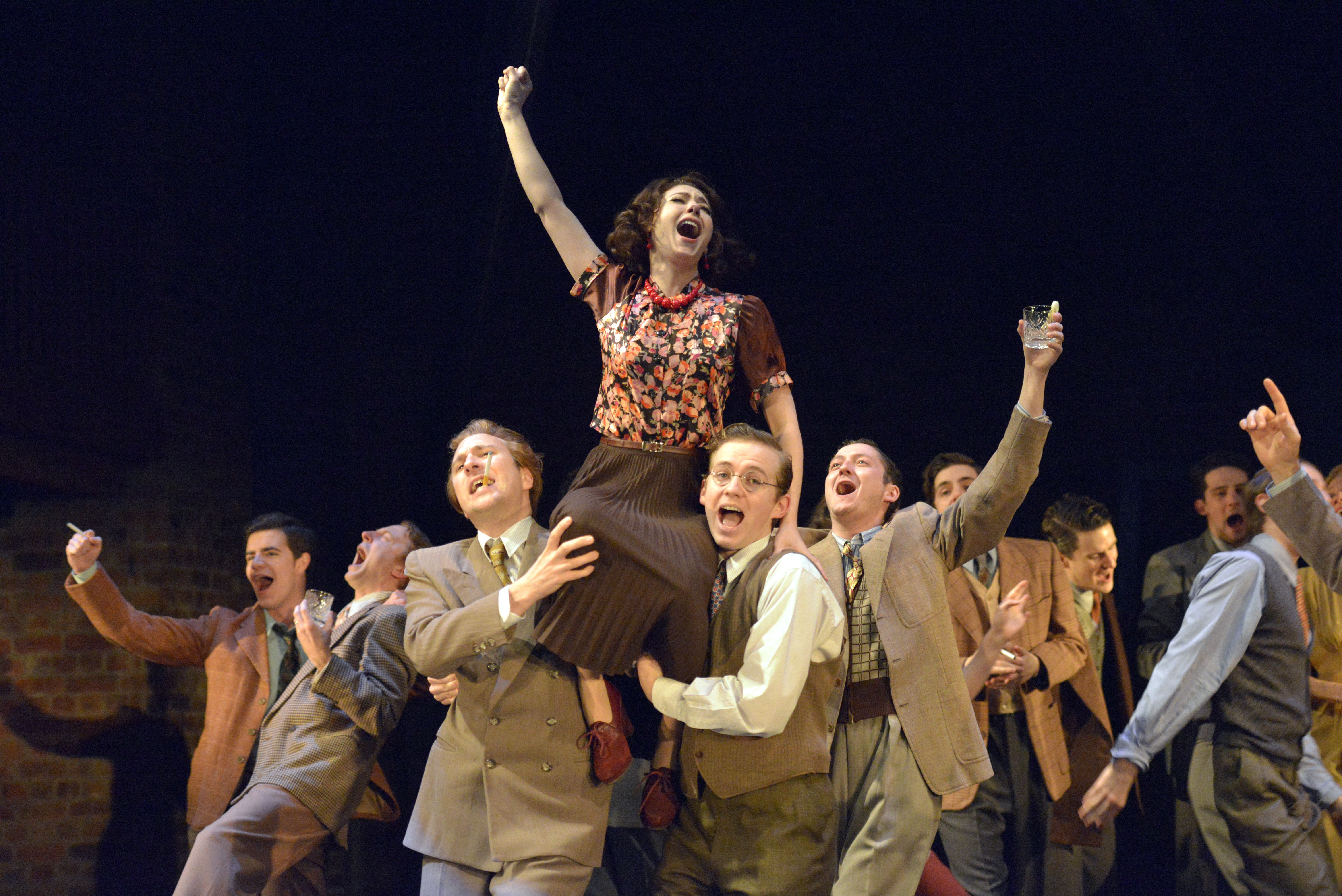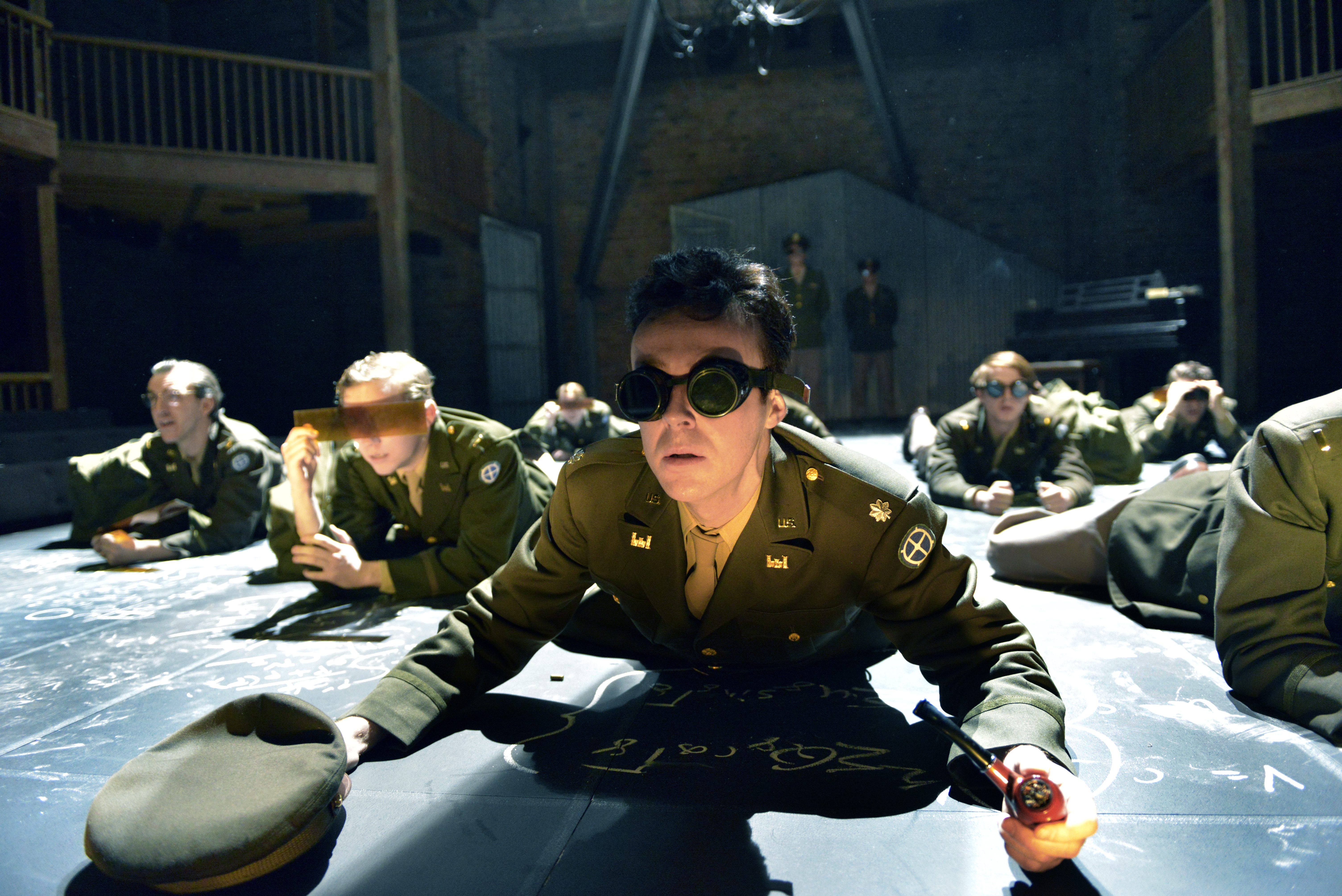BECKY BAINBRIDGE reviews the Royal Shakespeare Company’s ‘Oppenheimer’ at the Vaudeville Theatre.
In the midst of the Second World War, two German chemists have discovered a process with devastating potential: atomic fission. When news reaches Berkeley, California, a team of theoretical physicists come together to form a collaboration, the Manhattan Project. Led by J. Robert Oppenheimer, the scientists embark on the race to develop nuclear weapons before the Axis Powers, thus helping to win the war for the Allies. But Oppenheimer is fighting a war on both fronts; the chaos of his private life mirrors that of his scientific endeavours. The Royal Shakespeare Company brings Oppenheimer’s wartime tale to the stage in a strongly emotive production.
Originally written for the RSC’s home in Stratford-Upon-Avon, the production is surprisingly well adapted to its new venue. With the unusual use of character entry from the doors to the side and back of the auditorium, the play feels fully integrated into the space and, at times, emulates the “in the round” experience. Yet, the production goes one step further: the houselights remain undimmed at the beginning of each act, as the characters on stage address the audience directly. It is a bold and rather brave decision to openly acknowledge the artificiality of its staging, but it is a risk worth taking.
After an abstract interpretation of the bombing of Hiroshima in Act II, it soon becomes apparent that the production’s meta-theatrical staging is absolutely necessary. By avoiding realism, the play’s trajectory traces the emotional development of the characters rather than the unfeeling consequences of full-scale nuclear disaster. The pay-off is superb. Characters are multi-faceted, eluding the territory of the caricature for the most part, and flourishing by the time the play reaches its astonishingly emotive finale.
Tom Morton-Smith’s script encapsulates the time period competently. The finest moments arrive in the form of lyrical monologues, delivered with a proficiency that is truly remarkable. John Heffernan in the title role gives an outstanding performance, but it is only in the second act, when the plot and dialogue have reached a heightened point of emotional crises, that his acting prowess becomes incontestable.
This is a play of two decidedly different halves. The first is expository, providing the character development and scientific groundwork from which the plot springs. The pacing is very rapid, switching from the broad-scale laboratory to the intimacy of couples’ relationships. Thomasin Rand and Catherine Steadman turn in performances that complement Heffernan’s cool, authoritarian portrayal of a man waist-deep in governmental bureaucracy and torn asunder by a love for two women.
Amidst the clamour of warfare and the confusion of two love-affairs, the scenery remains sparse but effective. The sterility of the emotional climate and laboratory setting is affected by the black walls and floor. All surfaces are used as blackboards, evoking a sense of the relentless pursuit of nuclear technology whilst, more functionally, enabling a quick cross-cutting from social gathering to laboratory or bunker. The use of projection, a laser-emitting bomb, and corrugated iron enhance the play aesthetically, in which the conservative 1940’s fashion appears unexpectedly vibrant. When combined with the musical dimension of an onstage piano, incorporated into scenes to great atmospheric and comic effect, the audience is able to keep abreast of the plot despite its speedy progression.
This play has arrived at the right time, tapping into the oddity of a modern nostalgia for 1940’s wartime austerity. With a cast giving strong, individual performances, the minor frustration of Act I’s extensive build-up goes unnoticed. It is a play to be seen and heard and felt. An experience that comes heartily recommended.
Oppenheimer runs until 23rd May. For more information and tickets visit: http://www.rsc.org.uk/whats-on/oppenheimer/
Imaged credited to Keith Pattison.






